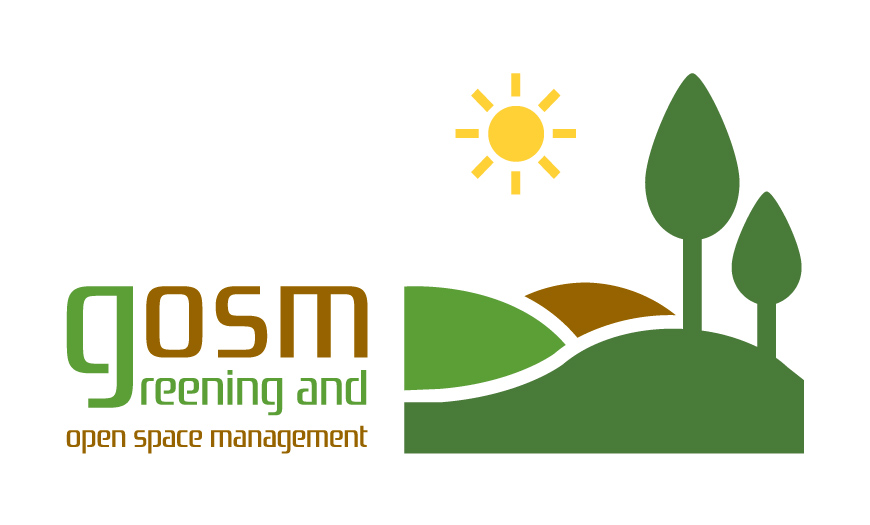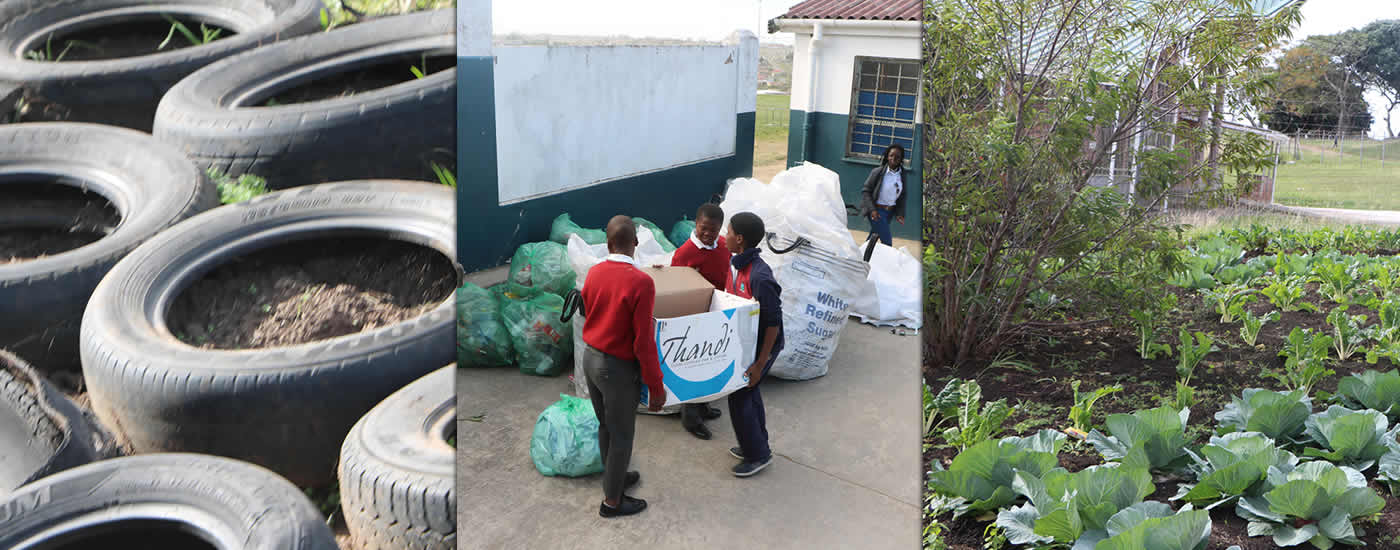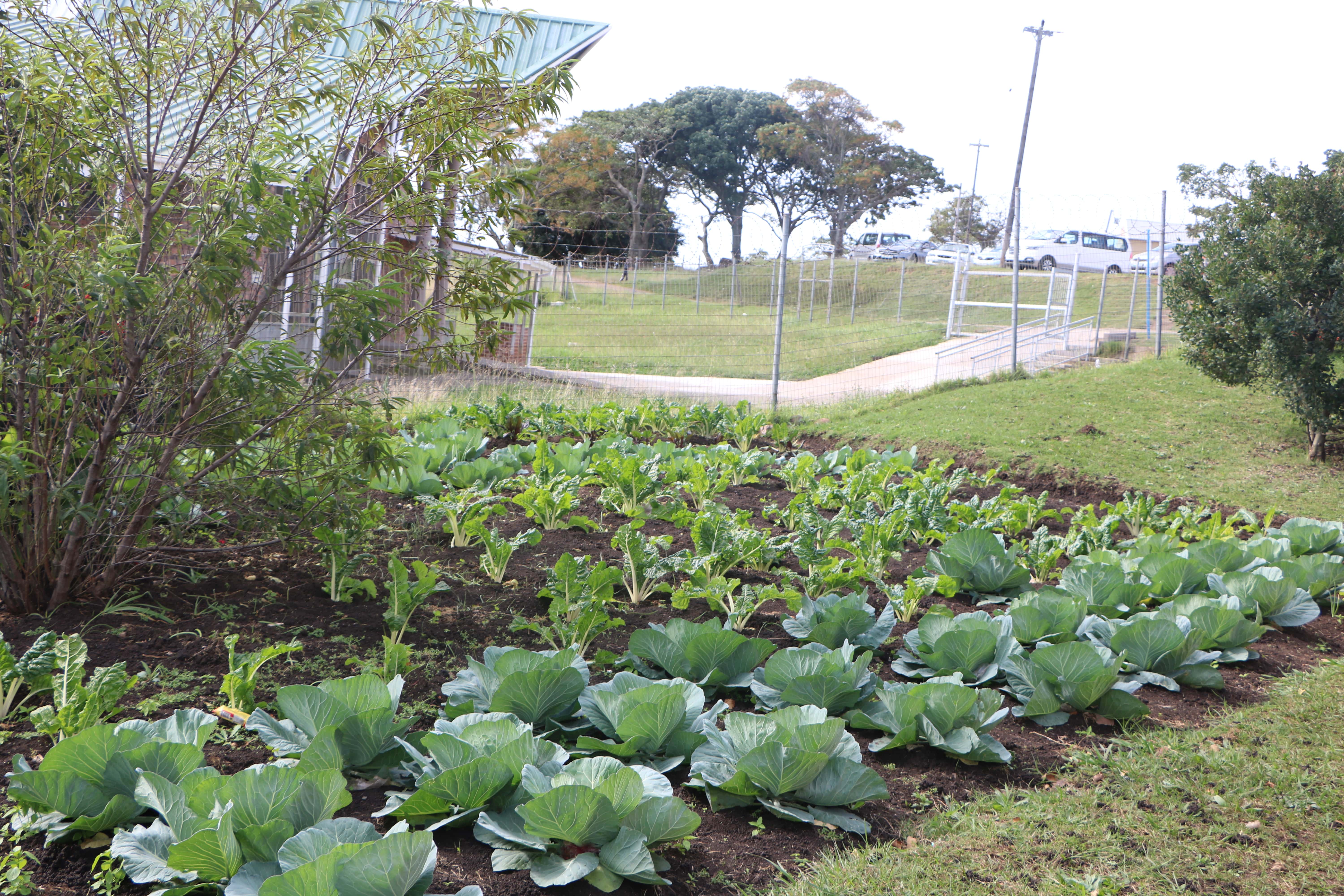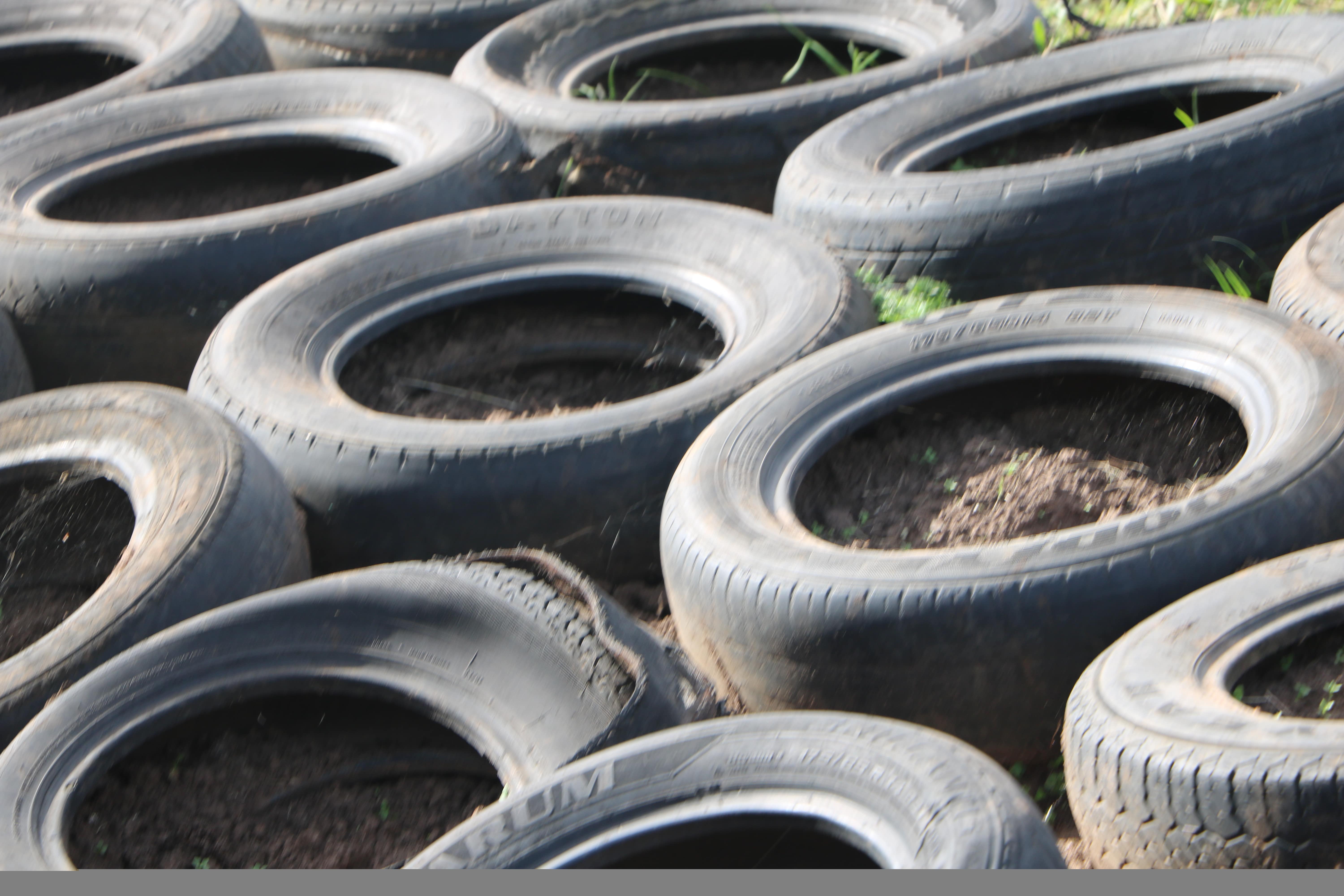GREENING AND OPEN SPACE MANAGEMENT (GOSM) DEFINED
In recognition of the Constitutional obligation, the department promulgated the National Environmental Management Act 107 of 1998 in support of the environmental management function in all spheres of government. Based on this, the department implements projects as some form of response to the challenge of environmental degradation whilst addressing environmental conservation and protection.
GOSM play an integral part in maintaining healthy, vibrant and environmental integrity in the communities. Over time, these open spaces have been degraded due to several demands ranging from housing developments and other land use demands and at times end up being illegal dump sites. GOSM has been adopted by the department as one of the focus areas in implementing projects that specifically deal with the management of greening and open space initiatives. Projects implemented under this focus area contribute not only to the maintenance and the integrity of the natural environment but also play a significant role in the biodiversity conservation, ecological value, aesthetic value, social and physical well-being of the human population by creating job opportunities.
The promulgation of the National Environmental Management Biodiversity Act (10 of 2004), Chapter 3, provides for the development of bio-regional plans wherein sensitive biodiversity areas would be mapped to inform land use planning and management of natural resources by a range of sectors, and such plans would assist in identifying ecologically sensitive areas and improve environmental management practices.
The mandate for the management of greening and open spaces is therefore particularly derived from this Act. This focus area addresses issues relating to conservation and environmental protection such as planting of indigenous plants; and upgrading or refurbishment of existing development, which eventually respond to service delivery outputs and the mandate of the department. As part of GOSM initiatives, the department is committed to consider funding projects that provide solutions to climate change such as provision of Biodiversity Economy Infrastructure Facilities e.g. construction of nurseries and plant-incubating tunnels with the corporation of South African National Biodiversity Institution (SANBI) and local government sphere. The development of an open space network is an integral part of shaping the community areas as well as a pull factor for investments in sustainable development and creating sustainable jobs. Equally important, is the integration of greening and open space management into any developmental objectives and plans by municipalities.

Given the growth in population and the demand for settlements as well as the continuously growing need for natural resources to sustain livelihoods, GOSM supports and promotes the use of alternative greener technologies in such developments. Through this focus area (GOSM), newly developed human settlements are supported through installation of greener technologies as well as greening of open spaces. The GOSM focus area / sub-programme intends to strategically approach the issue of urban greening, greening at large and management of open spaces through ensuring that municipalities and departmental entities are assisted with open space management plans and the
necessary financial support that will inform and provide the open space designs, and direct the greening investments towards a holistic and integrated greening strategy. This focus area is also aimed at addressing the poorly managed areas such as unmanaged open spaces, illegal dump sites, eroded areas, areas overgrown with alien invasive plants through provision of necessary infrastructure for waste management within municipal areas as well as along the entire South African coastline.
These areas attract poor waste management, criminal activities and health hazards due to vermin. The transformation of these areas into recreational areas for the communities to relax and enjoy the natural environment is of utmost importance. This will also improve the well-being and the aesthetics of the communities.
GOSM is one of the initiatives by the DFFE implemented through Environmental Programmes Branch under the auspices of Expanded Public Works Programme (EPWP). The initiative is a proactive preventative measure that recognises psychological impact of unhealthy open spaces in the communities such as delipidated bio-infrastructure and dumping sites. Ineffective parks and open space management practices can affect the well-being of the communities, and this can be further exacerbated by the increased use of illegal dumping and littering. This initiative, therefore, seeks to ensure that both social and ecological sustainability are achieved through implementation of sustainable ecological biodiversity and open space management practices.
STRATEGIC OBJECTIVES
- To restore, enhance and rehabilitate open spaces.
- To maximize measures towards pollution mitigation.
- To improve climate change adaptation through minimization of biodiversity loss.
- To encourage the use of greener technologies to mitigate environmental degradation.
CATEGORIES OF PROJECT IMPLEMENTED WITHIN GOSM
There are two categories of projects that are funded and implemented within Greening and Open Space Management focus area, namely infrastructure and non-infrastructure project types.
a. INFRASTRUCTURE PROJECT TYPES
- Refurbishment/rehabilitation/maintenance of existing environmentally friendly recreational parks
A high-quality environment is an essential ingredient to sustainable human settlements, hence there is a need for proper and well-maintained open spaces. Open spaces are needed for spiritual enhancement, well-being, education, and recreation. Well-developed and maintained open spaces do not only provide recreational opportunities to communities but may also serve as a catalyst for investments in such areas as they will serve as a pull factor to business opportunities.
- Construction of nurseries
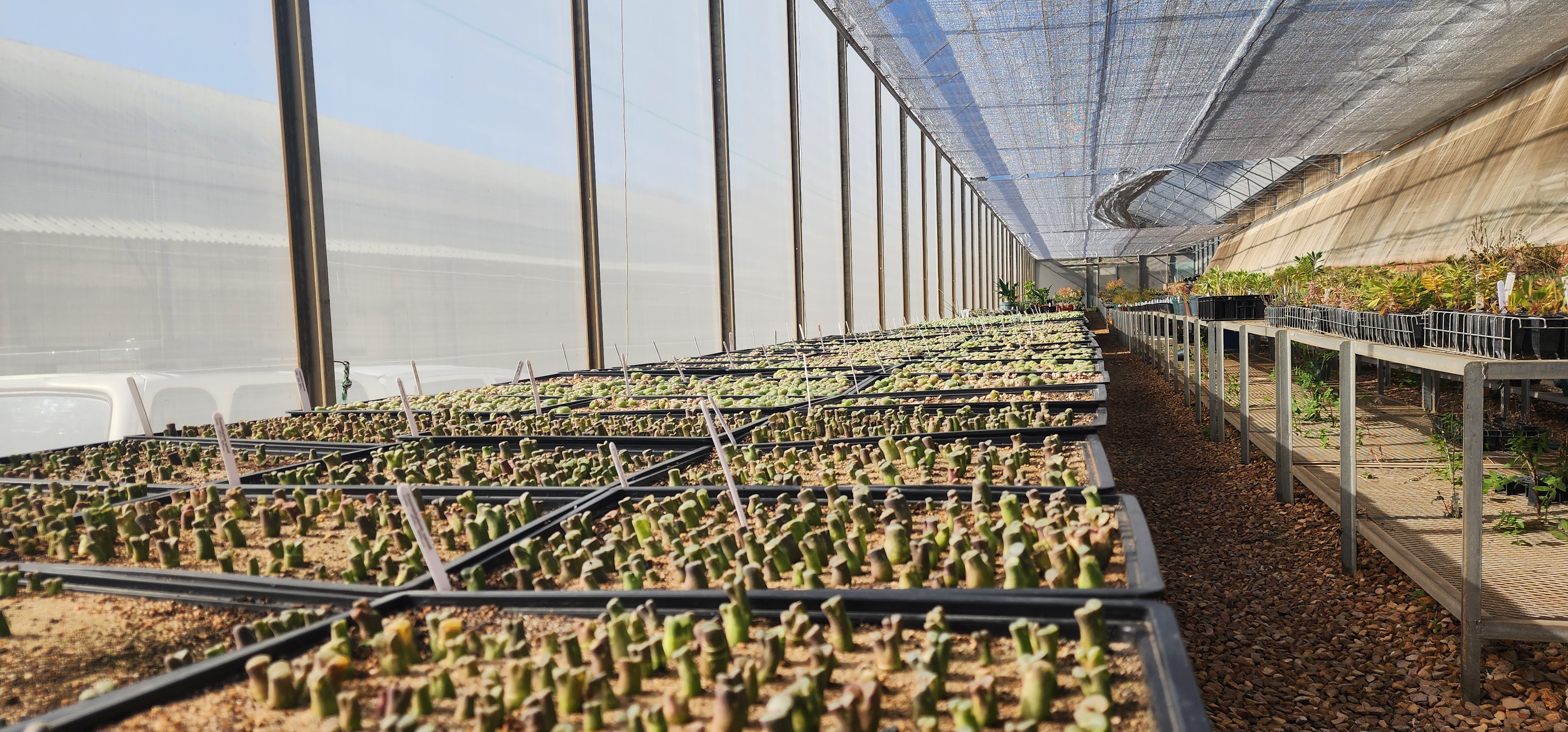
Nurseries are central to the realisation of greener communities. These do not only provide economic opportunities but serve as reserves for biodiversity through propagation of plants which can be planted throughout our communities. The challenge of global warming with the imminent results of challenges in food security has led to the nurseries being regarded as one of the vehicles to combat the challenge through the provision of horticulture education to communities as well as planting of fruit trees and vegetable seedlings.
In some communities, nurseries have provided jobs and created assets for such communities as the demand of plants has risen and creating greater opportunities for commercialisation.
- Construction of environmental education centers
Environmental educational centres focus on processes and activities that promote critical thinking, problem solving, and effective decision-making skills towards the environment. Greening and Open Space Management component establishes two types of Enviro Edu-care Centres for kids and adults. These centres are designed in a manner that promotes healthy practices of residents on the environment. Environmental education can also be utilised by students in observing, measuring, classifying, experimenting, and other data gathering techniques for schoolwork.
- Development of green villages/ greener technology
Development of a green village simply refers to collective practice of environmental activities within the communities. Based on the geological location and resources, some villages are privileged to have better climate conditions to effectively practice green technology other related environmental activities. This may involve installation of solar panel systems to harvest water and energy for other agriculture or environmental use.
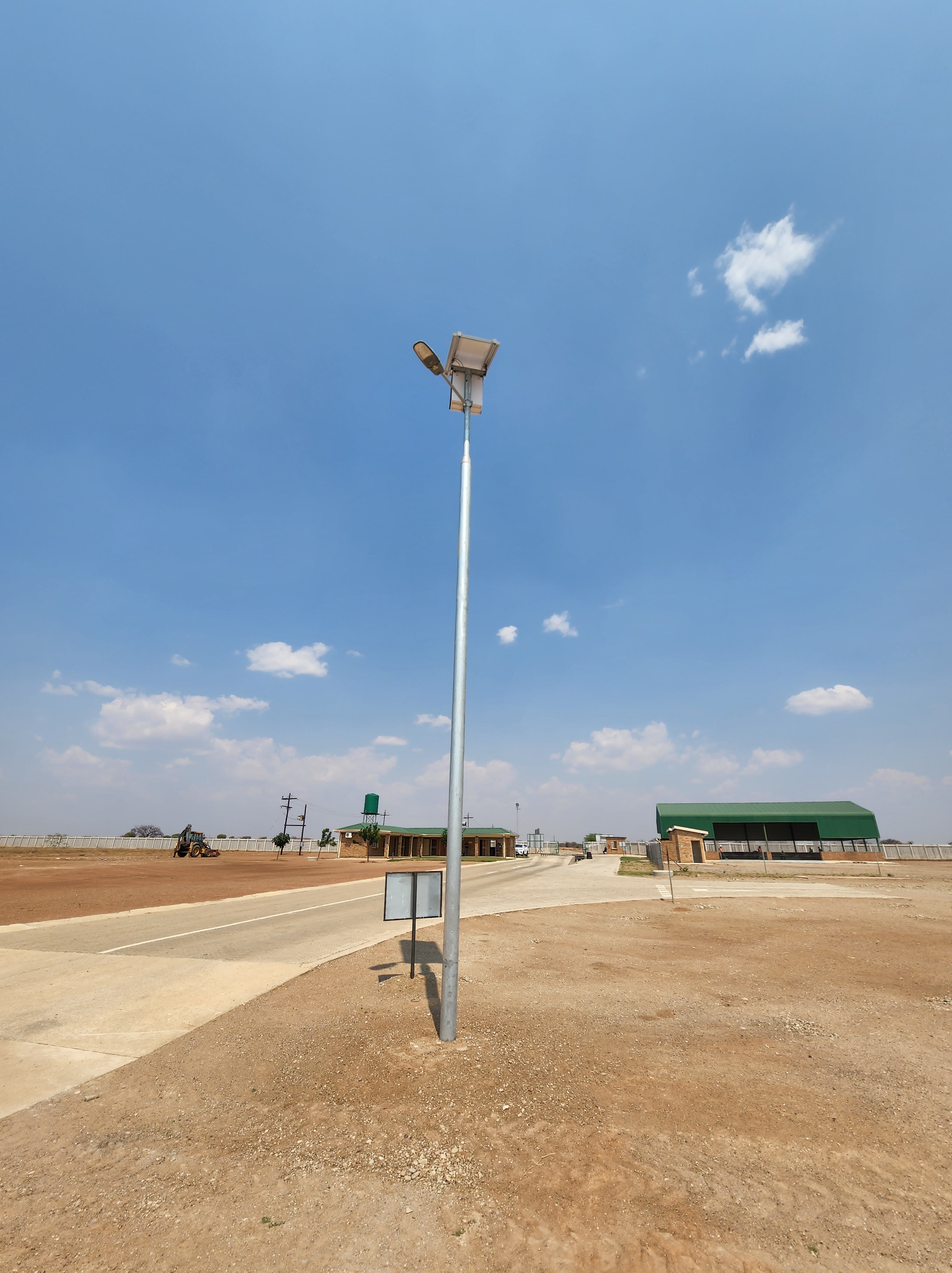
b. NON-INFRASTRUCTURE PROJECT TYPES
- Tree planting
Studies have shown that climate change is to have devastating effects in Africa and its communities more over the poorer communities. In mitigating some of the impacts, tree planting has been singled out as one of the mitigating interventions not only to climate change impacts but will also address the issue of food security, as well as the prevention of soil erosion and degradation. Furthermore, trees are an integral part of human settlements as they provide for life as well as acting as shields during adverse weather conditions and reduction of the carbon footprint.
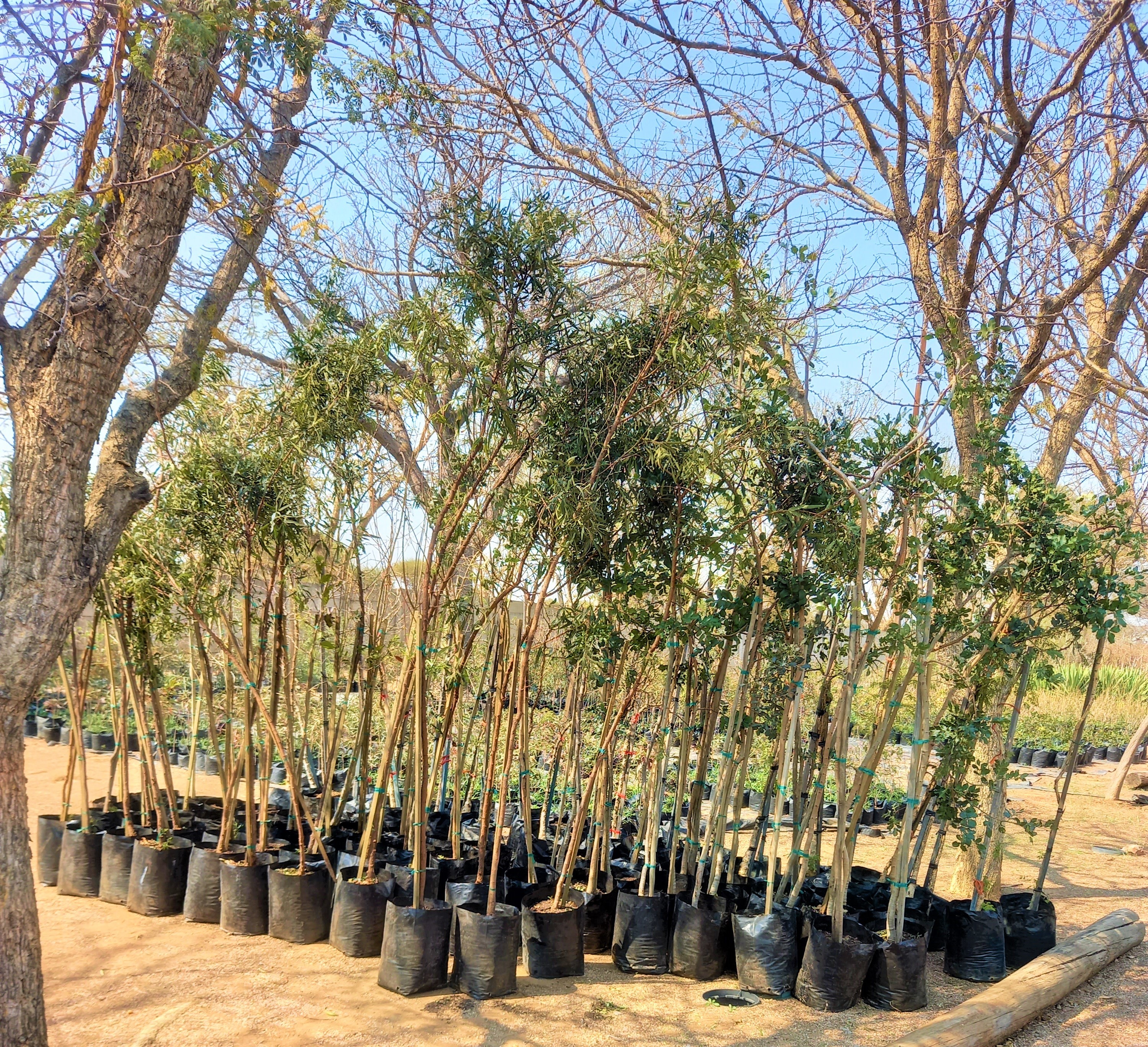
- Greenest Municipalities Competition (GMC) – Awards
This category of projects emanates from the annual calendar event that has been running since 2001 formerly known as the Cleanest Town Competition. The competition facilitates the participation of municipalities, provincial counterparts, communities, and other relevant stakeholders in waste management within their respective areas. The Deputy Minister hosts a special award ceremony each year and awards are in two categories i.e. Metropolitan and Local Municipality category. The funds for the redemption of the awards are sourced from EPIP in a form of waste management and greening related EPWP project equivalent to the prize money. This is of great strategic importance as it encourages municipalities to initiate projects that address issues within their Integrated Development Plans (IDPs) and links with the EPIP mandate of creating temporary jobs and promoting skills development. The type of projects implemented are conceptualised by municipalities and should cover the aspects of waste management and greening and management of open spaces.


